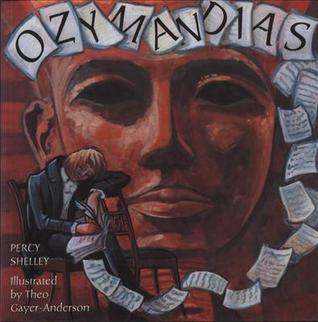
Reading Response #3
- Title: Ozymandias
- Text type: Poem
- Author: Percy Shelley
Percy Shelley’s “Ozymandias” illustrates hubris and the side-effects of possessing this trait through the political character of an ancient “king of kings.” Through this sonnet, Shelley describes a traveller who came across a statue in a desert. The poem is created as one metaphor, intending to portray how political power can result in arrogance and in turn, destroy a person. Shelley paints a picture of the statue’s features using a range of language features. We witness this when he refers to the visage as having a “sneer of cold command” and “trunkless legs of stone.” This combination of alliteration, personification, and adjectives creates an image of a hostile militant, alone in the world with no remorse as his hubris is dominant over other qualities, such as humility. His “sneer of cold command” portrays to readers that Ozymandias is presumptuous, he does not regard the opinions’ of others to be credible as his personal admiration is sufficient enough.
In the second stanza, Shelley recounts the words written on the statue, words that cry self-determined superiority and power; leadership and excellence. However, the last three lines of the sonnet read: “Nothing beside remains. Round the decay Of that colossal wreck, boundless and bare The lone and level sands stretch far away.” These lines insinuate that having command does not entitle security and despite Ozymandias’ great hubris, we need other people in order to survive and die without oblivion. This, as well as referring to the statue from the description of a random “traveller,” enables us to view Ozymandias as even less prepotent and solidifies the fact that power and respect are not interchangeable. Shelley creates a self-assured character to represent what an abundance of self-pride can make a person become. Readers are then able to identify similar features within themselves and remove it from their personalities in order to become better people.
Although this lesson is vital to learn and the dire effects of hubris have been demonstrated a number of times, in other literature such as Macbeth, as well as in real life situations such as Hitler, determination and self-drive of lesser extremes can also result in successes. In fact, confidence is essential to achieve many goals at an optimum standard. I can relate to this as within my sport I have personally noticed many people who have utilised this self- belief to gain great things. This can be proven by observing a number of successful athletes, in particular, Usain Bolt, the fastest man in the world. As an individual athlete, Bolt’s result is completely dependent on his personal performance, rather than a whole team’s contribution. Therefore, his main source of motivation is required to come from himself and as a result, his means of psyching himself up are often regarded as cocky or arrogant. Bolt’s flamboyant actions in front of the camera, and calling himself a “legend” or “the greatest athlete to live,” may come across as conceited, however, he does what he has to in order to reap the best results.